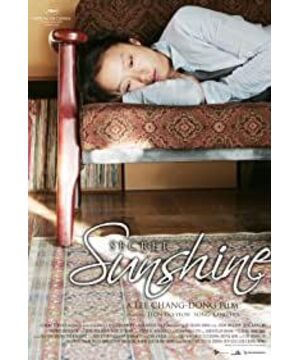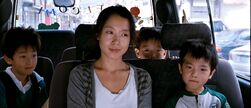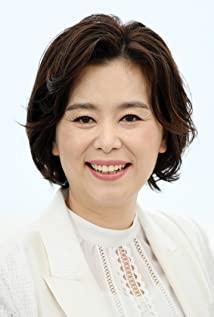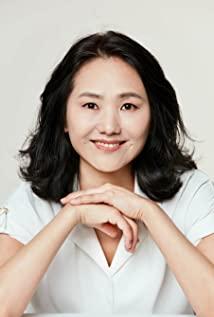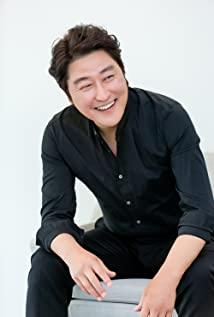Is it hard to make a good movie? No, in my opinion, there is nothing easier than making a master movie (who doesn't believe it, who pays me to make it, ha, funny), so why is it so rare for good movies? To answer with a combination of metaphysical and metaphysical words - to be practical, to be real, to think according to life itself is enough! It's easy, but it's hard to do! Most directors are reluctant to do this kind of movie, because they have all kinds of desires, all kinds of desires outside the movie, they use the movie as a tool, the audience as a fool, and the plain and real life as a worthless wind shadow ! Strictly speaking, they are just people who play movies. Metaphysical, physical, business, and art are nothing more than gadgets. Because it is play, serious metaphysical thinking often becomes empty and empty, and compassionate metaphysical attention often becomes a glimpse of light; because it is play, so when aiming at the market to concoct mass goods, it is not They are willing to put down their airs and say that they are in business (want to be a bitch and have to set up a memorial archway), and occasionally want to advertise that they can play a little art, but they can't stand loneliness and make bells and whistles (in fact, they really don't have any artistic accomplishments themselves).
Well, forget about them, the best way to treat them is "we don't need to mention them at all". Closer to home, let's talk about the movie "Miryang".
1. Life and life
Do people live only once? This is both true and false. From a biological point of view, it seems that no one has ever been found who has really died and can really come back to life, and then start over again. But our heroine says, "You know why I like it here, because no one knows me here, and I can start over." What does she mean by that? Think about when we all first came to this world, aren't we all unfamiliar with everything, and life begins from complete unfamiliarity. There is indeed only one life, but there are many possibilities in the space and environment of life, and these many possibilities have evolved into the same amount of strangeness. When a person lives in a familiar place and is unhappy, She may have to consider leaving this place to seek rebirth in another dimension, even though the latter is unfamiliar. Therefore, a departure is a rebirth.
Shen Ae's husband died. In the original metropolis, she didn't get along well with her family and her husband's family, so she took her son to bid farewell to the pain of the past and came to this big place - her husband's hometown. , a small town called Miyang. She hopes to start over, she actively plans to open a piano academy, sends out orders everywhere, greets everyone with a smile, and even gives some kind advice to others. She is strong, not only because she is close to her lover, but also because she has a son who gives her hope for her whole life, she must be strong.
When she is strong and positive to rely on her own ability to live anew, some people think she is pitiful, she will say that she is not working hard, some people will come to "help each other" with her like a shadow, she will politely keep a distance . She wants to invest in real estate, work actively, and carefully nurture her son's growth. The sunshine in Miryang seems to be really warm and hopeful. However, life is sometimes too cruel, and her inadvertent words caught the eye of the thief, thinking that she was rich, and then kidnapped her son, which eventually led to his death! At this point, a woman who died successively of her husband and son, her strength was finally crushed by the unpredictable cruel life! Her reconstructed life has been strangled again, and, as a woman, it seems that there is no possibility or need to be reborn again!
The living space of this world seems to have no way out for this woman, so when she looked up, she saw God, although she had rejected God before, that was because life had not developed to the point where she needed God. Just like when Zong Can saw a group of carolers at the station for the first time, he would not have expected that when he came to the station again, he would become a carol-singer with "faith", and he would be swayed by several people. Guy laughs at misconduct. Also, who can guarantee that these guys won't become a caroler in some way? But at this moment, Shin Ae, who has nothing in this world, can only escape to the other world to find redemption.
In the church, when people sang hymns reverently, for the first time she straightened her neck and wept heart-to-heart in the soothing love of the Father of God. Outside the frame, the priest's hand was gently placed on her head. Under the comfort of the Father of God, she gradually calmed down, as if she had gained a new life. From then on, she seems to be able to live again in the face of the sunshine of Miryang.
2. Narrative and Rhetoric
If the story develops to this point, we are still just following the camera to watch the fate of this woman. We don't know that the director is not only showing us the life of a woman who has a tragic fate and has been reborn, What other intentions does he have? Is this movie a story about religious redemption? If you have a lot of doubts and thoughts at this moment, then, first of all, congratulations, you are not a stupid movie consumer who only knows what to watch and what to watch, and secondly, continue to focus on your spirit, because the narrative paragraphs from here on down Here, the director behind the scenes began to really dominate the film. If the previous paragraphs mainly rely on the camera to play its unbiased recording function, then the next film, an observer and thinker of life, director Li Changdong began to replace the camera, with a writer to direct , The subject identity of a person holding a camera to express his deep and true understanding of life and religion.
As for what kind of place Miryang is, Zong Can, who is overly enthusiastic and unobtrusive, a little silly and a little cute, gave three answers one after another. The first time he brought Shen Ae's mother and son to Miryang, in the face of Shen Ae's question and explanation, he stupidly said, "Whatever it means, make do with it!" When he said sarcastically, "Miryang is really a strange place", Zong Can seriously told him, "How can Miryang be strange, Miryang is the same as other places!" Finally, when the film came to an end, a After the vicissitudes of life in the world, Shen Ae's younger brother asked with emotion, "What kind of place is Miryang?" Zong Can answered him with his iconic smile, "What kind of place is Miryang... There is no difference between Yang and other places, where people live are the same, hehe.” Repeating such discussions so many times, throughout the whole film, repetition is no longer just a rhetorical device, it goes beyond a simple narrative and becomes a theme that we all need to think about together.
Of course, the rich and ambiguous theme of this film cannot be fully expressed by these repeated words alone. Throughout the film, the repetition is not only reflected in the discussion of the meaning of the word "Miryang", many visual and auditory elements in the film are repeated, and there is a feeling of deja vu. After all, "there is nothing new under the sun", But each repetition is not just an increase in quantity, but a need for accumulation of life experience and in-depth theme.
Just like the title of the film, the sunshine in Miryang is also one of the important visual elements of the film, and it is also the most repeated element in the film. For a woman like Shin Ae who suffered cruelty, Sunshine did not leave her because of her misfortune. It always appeared everywhere. Of course, this was the director's intention, because this was not a vulgar sensation sympathetic film. Most of the stories in the film are unfolded in a sunny and bright space. Even in the scene where Shen Ae goes to see her son's body by the river, the camera first shoots the wind and the sun from Shen Ae's point of view. The blue sky, the sun shines cruelly, Shen Ae instinctively leans towards the shadow, her face is divided by the sun and the shadow, there are many similar compositions in the film.
Next is a long-range shot. The background of the cello is a little ominous. The camera does not follow up, but calmly looks at the scene under the sun. When the audience urgently needed to know whether the body by the river was Jun'er, the director's camera did not adapt to the audience, just like the sun does not adapt to people's state of mind, but just watched from a distance. But that's not enough, the unconventional narrative here disregards the viewer's eagerness to get information, cuts the shot all at once, and jumps to another scene before we see Shin Ae's reaction. The camera jumps to the police station, Shen Ai on the bench, the expression is still difficult to judge, we still don't know whether the body is Jun Er, which also makes us have a little illusion, hope this tragic woman will not suffer again. The fatal blow (this is also a very contradictory fantasy, if not Jun Er, it will be another mother's child, our well-meaning fantasy can not erase the unfortunate life itself). When the camera jumped to the next crematorium scene, it was not until the old woman who appeared for the first time crying and calling out Jun Er's name, we realized in horror and grief that Jun Er was really dead. And just when we didn't have time to grieve, we suddenly realized that Shin Ae in the previous scene had never cried, and here he didn't cry too much! From the director's point of view, such a restrained and jumping narrative enhances the narrative tension on the one hand, and on the other hand provides a potential energy for Shin Ae's subsequent explosion; and from Shin Ae's point of view, she is strong without crying. A consistent escape from a cruel life. To refuse to cry is to refuse to admit that her beloved son, the only one who kept her alive, is dead!
At this point, I can't help but think of the famous film "Blue" by the late film master Kieslowski (the two films do have many places to compare). The two women, who had almost the same experience, lost their husbands and children, did not cry, and in order to escape this huge pain, they both took a series of actions to refuse to admit it! In order to refuse to admit her death, Shen Ai did not cry. She did not dare to look into the eyes of the murderer in the police station. When she went to cancel Jun Er's household registration, she forgot her ID number and forgot to bring her ID card. She listened to Jun Er's words. Recording, learning Jun'er's snoring (and this is the habit of Jun'er's father, and Jun'er also resisted his father's death by imitating this habit), she once again refused the simple preaching of the pharmacy proprietress... In fact, all this is subconsciously huge The pain is resisting to admit the fact that the deceased is gone. Until she couldn't refuse to escape and saw the "Thank God" banner and the solemn and solemn hymn floating, she finally couldn't hide it, and ran to God like a truly lost lamb (she could only run to God), let the grief safely be released in the all-encompassing love of God.
Before recognizing God, Shen Ae's escape was mainly presented in a subconscious way, but after belonging to God, Shen Ae began to rely on various religious rituals to consciously and actively relieve her pain. After experiencing various religious gatherings, prayers, singing, and exchanges, she hopes to get closer to God and to better reflect God's great love, so she decides to go to the prison in person to forgive the man who killed her. Son's Murderer! This is undoubtedly a great and amazing decision!
At this time, Zong Can, who has always been obedient to Shen Ai's decision and noncommittal about life, spoke up. He felt that this method was too much and was unnecessary! The fact was as expected and unexpected. Unexpectedly, the murderer began to pray and repent to God in prison, and hoped to be forgiven, and the accidental arrival of Shin Ae was just used by him to cite that God really heard his voice, God really forgave his crimes - before Shin Ae forgives him! Here the two actors' wonderful performances and the director's vision for casting roles are well reflected. This murderer is contrary to our usual experience. He has a kind-hearted face, gentle and elegant (which makes his face even more disgusting), and Jeon Do-yeon listens to him quietly. The slight changes in her eyes and brows when she spoke showed Shin Ae's shaky suspicion and strong shock!
Therefore, this time, Shen Ai's forgiveness ceremony was not completed because of the early self-forgiveness of the forgiven, which also prompted her to wake up again from the ritual implied by religious psychology. Can such a heavy sin really be forgiven like this?
At this point, both the plot and the heroine's mental journey have gone through twists and turns. The narrative has always undergone unexpected and very real changes at critical moments. The audience has been cultivated by a large number of false movies out of life. Movie experience is overturned time and time again, and we are again at a loss as to how the story will continue.
Why are there repeated narrative variations? Our usual viewing habits require the film to develop around a unified and coherent theme. At the beginning of this film, we thought that the theme would develop around the relationship between Shen Ai’s mother and son and Zong Can. I thought that religious redemption was the core theme of the film, but at this moment, this theme has changed again. In fact, as an author's film, this is nothing new. Antonioni's "Adventures" has already set a precedent for anti-coherent narrative. Think about it in reverse, a movie with no variation and everything is expected, it looks good, but is it real? How much of our life is predictable, there are many times when one thing ends before it starts, and then jumps to another. As a writer and director, the most important thing is to reflect on life on the basis of respecting life, rather than to please the needs of the audience. Flattery movies are just another secular religion of escaping life, satisfying fantasies, accepting suggestion and self-suggestion. This secular religion is everywhere, not just through a virtual movie, but through a raise, a new outfit, a football game victory, a love affair, an advanced diploma, a A good transcript, a good meal, a pile of books, a car, a house, a political propaganda slogan... to complete, in one sentence, to hint and satisfy one's own feelings of possession and victory with a kind of appearance. Excellent, successful, good mental needs. (Perhaps, this is understandable, psychologists point out that for most people, life is in the hint and self-suggestion, otherwise the life will not be able to live)
The film has developed to this point, and our heroine has realized that the suggestion of religion to herself cannot replace a woman's instinctive pain of bereavement. What should I do? Once aware of this, Shin Ae started another set of rituals to fight the pain - denying God with contempt for God, and deflecting her inner pain with hatred for God: she provoked religious activities several times, stolen goods, Seduce the priest and even seduce Zong Can, until he finally looked up at God and cut his wrists to commit suicide. In Shin Ae's heart, this suicide has been transferred to a homicide, killing a traumatized woman in front of God, in order to provoke God's incompetence, deny God's authority, and of course, it is the most thorough response to suffering. escape!
Another bleak cello, like the saddest lament, the will to survive finally saved the urge to destroy at the last moment, a long-shot scene arrangement in a dark night, I can't see the appearance of others, only a woman in despair She shouted to passersby to save her! In the face of death, she finally broke through all kinds of rituals and confrontations, and cried for help in dripping blood and was reborn again.
3. Sunshine and Shadow
Although Shen Ae has suffered repeated blows, after repeated rebirths, she finally returned to life and chose to live. Even so, every time Shin Ae seeks to be reborn, it is not a one-step, sudden change. This is also different from those promiscuous films that focus on binary opposition and from general preaching. This is also the most authentic and valuable part of this film. Just after she converted to religion and before she decided to go to prison to forgive the murderer, she once saw the murderer's rebellious daughter being beaten by two hooligans. At this time, she reviewed the struggle several times, started the car and left, but couldn't bear it, and turned back again. But accidentally almost bumped into a couple. And the blind reprimands of these two "just in time" unforgiving guys led her to finally have sufficient reasons to ignore the girl-since life is so unfair and hateful, let others do the same Go to the pain. The grasp of this accurate life situation restores the life logic of most of us very well. People often give others the same experience and life according to the pros and cons of their own encounters. It is in this mutual transfer of emotions that happiness and pain are passed on!
For this girl, her transformation and transformation is also a dark thread in the film. At the beginning, she was a rebellious girl who was taught by her father, and she was rude and did not take the initiative to say hello. When her father kidnapped Jun Er, she came to Shin Ae's piano academy. When Shin Ae found her, it was a pity that because of the girl's cowardice, the girl did not reveal to Shin Ai any information that might prevent the tragedy. So it seems that Shin Ae also has valid reasons for denying her help when she is beaten by hooligans. When Shin Ae committed suicide and was rescued and discharged from the hospital, she went to fix her hair, and it was this girl who cut her hair. She has learned good haircutting skills from the teenage teaching, no longer roaming the streets, and has started a practical work and life. As she grew up, she took the initiative to say "Hello!" to Shin Ae, and at the same time she shed rolling tears, revealing her deep regret! This is an innocent person who really needs Shen Ai to forgive, but Shen Ai still can't change her attitude immediately, and still leaves angrily, so that the girl is in panic and inescapable guilt.
However, Shin Ae is a strong and rational woman after all, no matter what, life can't be stopped, and when her hair grows, it always needs to be repaired. When she got home, she took out a mirror and trimmed the other side of her hair in the sun. Zong Can came, smiled silly, and helped her hold up the mirror, strands of hair fell. The wind is blowing, and the shot falls from the sky at the beginning of the film to the land at the end - still half sun, half shadow, just like our life itself.
At this point, although the movie is over, we can believe that when Shen Ai meets that girl next time, she will change her attitude. The girl is innocent and she needs Shen Ai to give her a chance to be reborn. Likewise, when Shin Ae encounters a religious gathering again, she will no longer provoke and confront. After all, people with all kinds of troubles need the comfort of religion! Therefore, this film is not an anti-religion film, and religion is only a part of life in Miryang, just like other places!
View more about Secret Sunshine reviews


